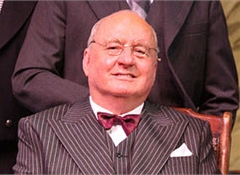Commentaries
Remember Oz "cash for comment" scandal?
6 May 12

The issue of media people allegedly accepting undisclosed outside payments created immense controversy in Australia, when an estimated $18 million was paid to top-rating talk show stars.
In New Zealand, the public have strong views on the impacts on media credibility when payments from non-media organisations are made to media employees here.
Wikipedia says that in 1999 , reporters Richard Ackland, Deborah Richards and Ann Connelly from the public broadcaster's Media Watch TV program revealed that 2UE talk radio hosts John Laws and Alan Jones had been paid to give favorable comment to companies including Qantas, Optus, Foxtel, Mirvac and major Australian banks, without disclosing this arrangement to listeners. Prior to giving favourable commentary to a group of banks, Laws had repeatedly criticised them for imposing unjustified fees on customers while cutting back on services.
In Laws’ case payments were also made by a casino in order not to discuss negative aspects of gambling.
The Australian Broadcasting Authority estimated the value of these arrangements at $18 million and found Laws, Jones, and 2UE to have committed 90 breaches of the industry code and five breaches of 2UE's license conditions. The inquiry heard that Laws received cash and VIP hospitality at Sydney's Star City Casino for not discussing negative aspects of gambling.
The Australian Broadcasting Authority made it clear that Laws was not a journalist, but a radio personality and so journalists' ethical standards didn't apply to him.
The inquiry focused on the extent to which deliberate commercial endorsement had led to distortions in which the public was misled about important matters.
Regulations were subsequently tightened to prevent such behaviour; however, the ABA has been accused of weakness and inconsistency in enforcing these regulations. Included in the changes were new sponsor disclosure requirements. Laws used a cow bell to announce sponsor deals following more stringent disclosure requirements.
In 2004, Laws and Jones were again accused of cash for comment in relation to deals both had made with Telstra. Laws was found to have breached the rules but Jones was cleared; the revelation of flattering letters written by ABA head David Flint to Jones, at the same time that Jones was under investigation, led to accusations of impropriety that ultimately forced Flint's resignation.
An HorizonPoll on this issue finds that 9.9% only think payments should not be declared to recipients’ media employers, their audiences and the public.


